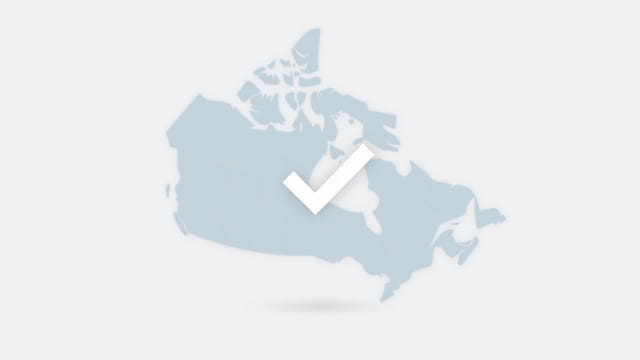Canada continues to be one of the most attractive countries for immigrants around the world, offering a high standard of living, universal healthcare, quality education, and cultural diversity. If you are looking for legal ways to immigrate to Canada, it’s important to understand the various immigration programs that the Canadian government has created to welcome skilled workers, family members, students, and refugees. Each program has its own criteria, processes, and timelines, making it crucial to choose the one that best fits your background and goals.
Express Entry System
The Express Entry system is one of the most popular legal pathways for skilled workers to immigrate to Canada. This points-based system manages applications for three federal economic immigration programs:
- Federal Skilled Worker Program (FSWP)
- Federal Skilled Trades Program (FSTP)
- Canadian Experience Class (CEC)
How It Works
Applicants create an online profile and are assigned a Comprehensive Ranking System (CRS) score based on factors like age, education, work experience, language proficiency, and adaptability. Candidates with the highest scores receive Invitations to Apply (ITA) for permanent residence.
Key Requirements
- Language proficiency in English or French (IELTS or TEF scores)
- Valid Educational Credential Assessment (ECA)
- At least one year of skilled work experience
- Proof of funds (unless already working in Canada)
Provincial Nominee Programs (PNPs)
Provincial Nominee Programs offer another legal way to move to Canada, especially if you have specific skills needed by a province or territory. Each province runs its own program to attract immigrants who can help meet local labor market needs.
Popular PNP Streams
- Ontario Immigrant Nominee Program (OINP)
- British Columbia Provincial Nominee Program (BC PNP)
- Alberta Immigrant Nominee Program (AINP)
- Manitoba Provincial Nominee Program (MPNP)
You can apply directly to a province or through the Express Entry-aligned stream. A nomination significantly boosts your CRS score, improving your chances of receiving an ITA.
Family Sponsorship
Canadian citizens and permanent residents can sponsor certain family members to immigrate legally to Canada. This pathway helps families reunite and build a future together in Canada.
Eligible Family Members
- Spouse or common-law partner
- Dependent children
- Parents and grandparents
Sponsorship Requirements
The sponsor must be at least 18 years old and demonstrate financial ability to support the family member without social assistance. Sponsors must also sign an undertaking to provide financial support for a specific period.
Study Permit and Post-Graduation Options
Canada is home to world-renowned universities and colleges, and many international students use education as a pathway to permanent residency. A study permit allows you to live and study in Canada legally.
Benefits of Studying in Canada
- Work part-time during studies and full-time during breaks
- Apply for a Post-Graduation Work Permit (PGWP) after completing your studies
- Gain Canadian work experience to qualify for the Canadian Experience Class
Studying in Canada is not only a way to earn a degree but also a strategic step toward legal immigration and long-term settlement.
Start-Up Visa Program
Entrepreneurs with innovative business ideas can apply through the Start-Up Visa Program. This pathway is designed for individuals who can create jobs for Canadians and compete globally.
Eligibility Criteria
- A qualifying business plan
- Support from a designated organization (venture capital fund, angel investor group, or business incubator)
- Adequate language skills in English or French
- Enough settlement funds
This legal immigration path targets business-minded individuals who want to contribute to Canada’s economy through innovation and job creation.
Atlantic Immigration Program
The Atlantic Immigration Program is tailored for skilled workers and international graduates who want to live in Canada’s Atlantic provinces: Newfoundland and Labrador, Nova Scotia, New Brunswick, and Prince Edward Island.
Program Highlights
- Job offer from a designated Atlantic employer is required
- Language proficiency and educational qualifications must meet basic standards
- Simplified process with support from employers and provinces
This program promotes population growth and workforce development in Canada’s Atlantic region, offering an appealing legal immigration route.
Rural and Northern Immigration Pilot (RNIP)
This community-driven program is designed to spread the benefits of economic immigration to smaller communities. Applicants must have a job offer from an employer in a participating rural area.
Requirements
- Eligible job offer in a participating community
- Meet language, education, and work experience criteria
- Intent to reside in the community
The RNIP is ideal for individuals who want to settle in a close-knit, quieter part of Canada while enjoying legal immigration options.
Refugee and Humanitarian Programs
Canada is known for its humanitarian approach to immigration. Refugees and individuals in need of protection can apply through legal channels to seek safety and start a new life in Canada.
Types of Refugee Claims
- Government-Assisted Refugees (GAR)
- Privately Sponsored Refugees (PSR)
- Asylum seekers within Canada
These programs offer a safe, structured, and legal process for individuals fleeing persecution, violence, or human rights abuses.
Self-Employed Persons Program
This immigration option is designed for people with experience in cultural activities, athletics, or farm management. Applicants must show that they can be self-employed in Canada and contribute meaningfully to the economy or culture.
Eligibility Factors
- Relevant experience (at least two years)
- Intention and ability to become self-employed in Canada
- Medical, security, and financial admissibility
This legal immigration pathway is unique because it prioritizes talent and entrepreneurial spirit over formal employment or job offers.
There are many legal ways to immigrate to Canada, whether you’re a skilled worker, student, entrepreneur, or family member. Each program has distinct requirements and benefits, so understanding the options and preparing a strong application is key. Canada continues to welcome newcomers who bring skills, diversity, and hope for a brighter future. Choosing the right path can turn your dream of living in Canada into a reality. Start by evaluating your qualifications, exploring provincial and federal programs, and considering long-term settlement goals. Legal immigration to Canada is a journey and one that begins with informed, responsible steps.
